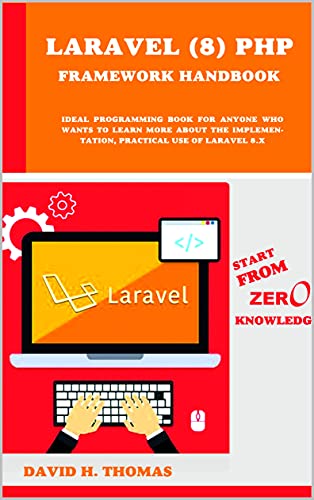Free download Principles of Modern Chemistry (7th edition) written by David W. Oxtoby, H.P. Gillis and Alan Campion in PDF.
Long considered the standard for covering chemistry at a high level, PRINCIPLES OF MODERN CHEMISTRY, 7e continues to set the standard as the most modern, rigorous, and chemically and mathematically accurate book on the market.
Thoroughly revised and updated throughout to strengthen its sound "atoms first" approach, this authoritative book now features new content, and new art. In addition, the text is now more reader friendly without compromising its rigor.
End-of-chapter learning aids now focus on only the most important key objectives, equations and concepts, making it easier for readers to locate chapter content, while new applications to a wide range of disciplines, such as biology, chemical engineering, biochemistry, and medicine deepen readers' understanding of the relevance of chemistry in today's world.
The seventh edition of Principles of Modern Chemistry is written for students in honors and upper-mainstream general chemistry courses who seek to understand and interpret chemical events at the molecular level.
The relation of molecular structure to function and properties requires the introduction of molecular structure early in the course and the use of structural arguments in presenting the remaining topics. Moreover, these students will soon be introduced to the great predictive power of chemical computations and simulations, for which a solid background in the description of molecular structure is essential.
The seventh edition presents the material from a unified, molecular point of view that continues to emphasize the central role of structure, but now with greater focus on the electronic structure of molecules as a unifying theme.
Chapters 17 and 20, for example, have been completely rewritten to provide additional insight into the nature of electrochemical, spectroscopic, and photochemical processes by discussing the role of electronic excitations, energy transfer, and charge transfer in these processes using the qualitative quantum mechanical concepts (energy levels and their occupancy) developed earlier in the book.
CONTENTS
Unit I: Introduction to the Study of Modern Chemistry
The Atom in Modern Chemistry
Chemical Formulas, Equations, and Reaction Yields
Unit II: Chemical Bonding and Molecular Structure
Chemical Bonding: The Classical Description
Introduction to Quantum Mechanics
Quantum Mechanics and Atomic Structure
Quantum Mechanics and Molecular Structure
Bonding in Organic Molecules
Bonding in Transition Metal Compounds and Coordination Complexes
Unit III: Kinetic Molecular Description of the States of Matter
The Gaseous State
Solids, Liquids, and Phase Transitions
Solutions
Unit IV: Equilibrium in Chemical Reactions
Thermodynamic Processes and Thermochemistry
Spontaneous Processes and Thermodynamic Equilibrium
Chemical Equilibrium
Acid–Base Equilibria
Solubility and Precipitation Equilibria
Electrochemistry
Unit V: Rates of Chemical and Physical Processes
Chemical Kinetics
Nuclear Chemistry
Molecular Spectroscopy and Photochemistry
Unit VI: Materials
Structure and Bonding in Solids
Inorganic Materials
Polymeric Materials and Soft Condensed Matter
About the Author
David W. Oxtoby became the ninth president of Pomona College on July 1, 2003. An internationally noted chemist, he previously served as dean of physical sciences at the University of Chicago.
At Pomona, he holds a coterminous appointment as president and professor of chemistry. Before coming to Pomona, he was associated with the University of Chicago for nearly three decades, with brief interludes to serve as a visiting professor at such places as the University of Paris; the University of Bristol in Great Britain; and the University of Sydney in Australia.
Oxtoby is a fellow of the American Physical Society and a member of the American Chemical Society and the American Association for the Advancement of Science. After earning his bachelor's degree, summa cum laude, from Harvard University, he went on to earn his Ph.D. at the University of California, Berkeley.
As a research chemist, he is author or co-author of more than 165 scientific articles on such subjects as light scattering, chemical reaction dynamics and phase transitions.
In addition to co-authoring Principles of Modern Chemistry and Chemistry: Science of Change, he has received fellowships from the Guggenheim, von Humboldt, Dreyfus, Sloan, Danforth and National Science foundations.
H.P. Gillis conducts experimental research in the physical chemistry of electronic materials, emphasizing phenomena at solid surfaces and interfaces. Dr. Gillis received his B.S. (Chemistry and Physics) at Louisiana State University and his Ph.D. (Chemical Physics) at The University of Chicago.
After postdoctoral research at the University of California-Los Angeles and 10 years with the technical staff at Hughes Research Laboratories in Malibu, California, Dr. Gillis joined the faculty of Georgia Institute of Technology. Dr. Gillis moved to University of California-Los Angeles, where he currently serves as Adjunct Professor of Materials Science and Engineering.
He has taught courses in general chemistry, physical chemistry, quantum mechanics, surface science, and materials science at UCLA and at Georgia Institute of Technology.
Alan Campion is Dow Chemical Company Professor of Chemistry and University Distinguished Teaching Professor at The University of Texas at Austin. A member of the faculty for more than 30 years (and former Department Chairman), Professor Campion's research in surface physics and chemistry and condensed matter spectroscopy has been presented in more than 120 scientific publications and more than 100 invited lectures worldwide.
He has been an Alfred P. Sloan Fellow, a Camille and Henry Dreyfus Teacher Scholar and a Guggenheim Fellow and he was awarded the Coblentz Memorial Prize in Molecular Spectroscopy.
Professor Campion developed the curriculum for the junior/senior level Physical Chemistry course, the Chemistry in Context course for non-science and engineering students, and the chemistry and biochemistry majors general chemistry course, which also serves as an honors course for the College of Natural Sciences.
He has been recognized for his teaching by both students and peers with numerous, campus-wide teaching awards, including the prestigious Jean Holloway Award for Teaching Excellence in the Colleges of Liberal Arts and Natural Sciences (student-selected) and his induction into the Academy of Distinguished Teachers (peer-nominated).
About The Book:
Publisher : Cengage Learning; 7th edition (May 31, 2011)
Language : English
Pages : 1280
File : PDF, 75 MB
Free Download the Book: Principles of Modern Chemistry 7th Edition
PS: Share the link with your friends
If the Download link is not working, kindly drop a comment below, so we'll update the download link for you.
Happy downloading!








